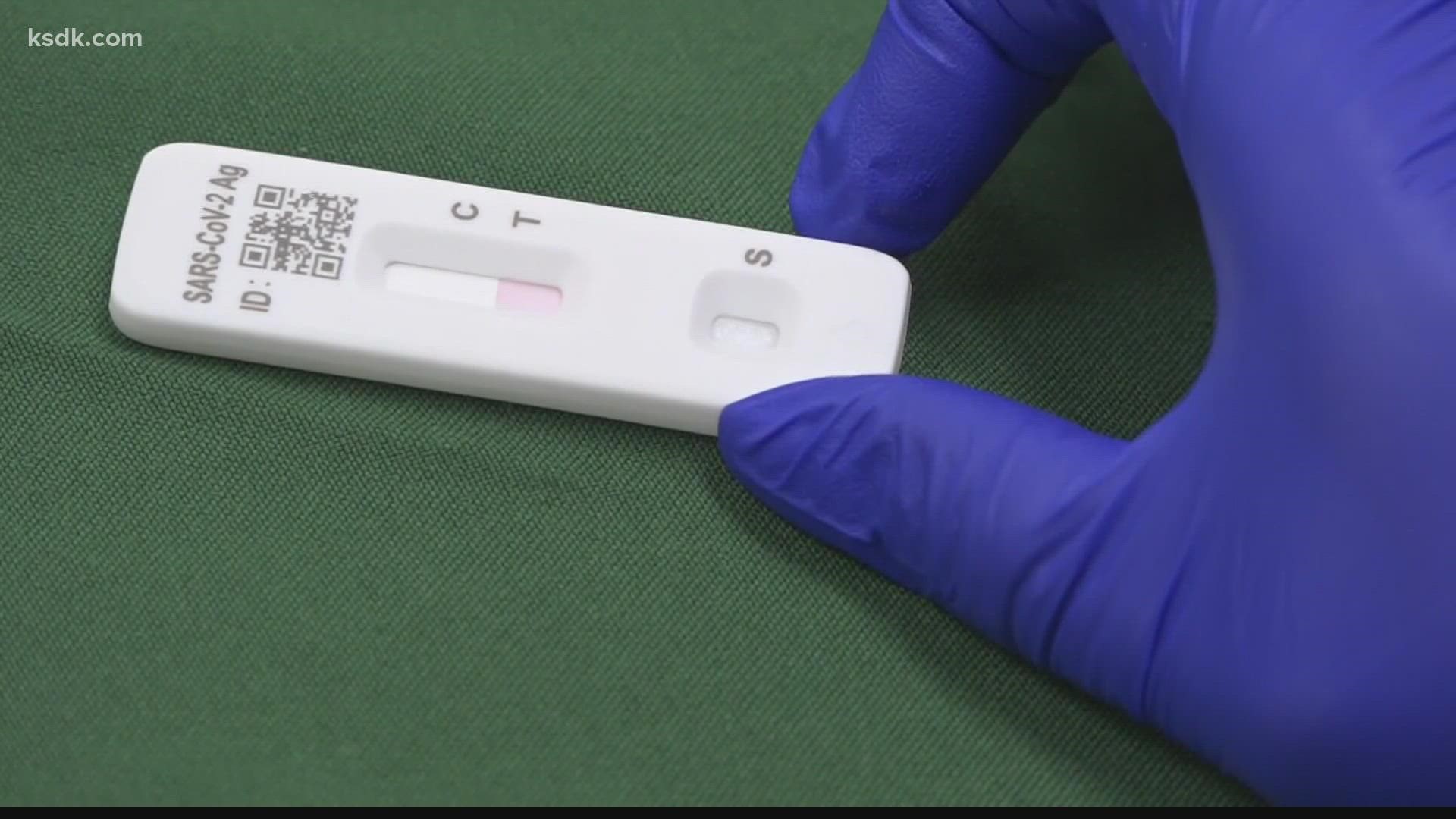ST. LOUIS COUNTY, Mo. — The standard for COVID-19 testing has been a deep nostril twirl to gain detection of the virus.
But with the new variant, some preliminary findings suggest the omicron particles may appear in the throat before the nasal passages. That's why some are doing saliva-based testing.
The St. Louis County Department of Health is already doing those types of tests at its new North County Recreation Complex site.
The patient spits saliva into a container and seals it.
Soon, the department will launch an initiative to distribute at-home PCR saliva testing kits at two of its libraries.
5 On Your Side spoke to doctors to figure out when you should get tested and how the process works.
When should you get tested?
Dr. Farzana Hoque is a SLU Care hospitalist at SSM Health SLU Hospital.
She said if you've been exposed and you have symptoms, get tested.
If you've been exposed and you're without any symptoms, you should wait three to five days to get tested.
"If it is taken so early, the antigen that is checking protein may not have built up," she said.
24/7 Heatlhcare physician Dr. Joseph Casper agreed.
"You want to wait up to five days to give it a chance to build up, so the test is correct. Your body hasn’t built up the antibody to show up," he said.
How to take the test
The saliva test requires you to spit into a tube.
"So basically you take the tube, you either have a straw that connects into it or you have a funnel, screw that on there," Dr. Casper said. "You just spit into it. It does take a lot of saliva. You're gonna have to lick the side of your cheek trying to get more saliva built up. Take your time."
When you reach the two-millimeter line, which is about a fourth of the tube, that's how much you need. It does not include the bubbles or the foam.
Dr. Casper said to make sure you know certain guidelines to administer the test. At least 30 minutes before, there should be no eating, drinking, smoking or vaping.
"You do want to drink 60 minutes before because you want to create that saliva," he shares.
Dr. Casper believes these type of tests can be great for kids and for anyone having a hard time doing the nose swab.
"Saliva test is perfect for most people who have a lot of trouble getting that swab all the way up into the nasopharynx, it has to go pretty deep. Always get a lot of complaints," he shares.

